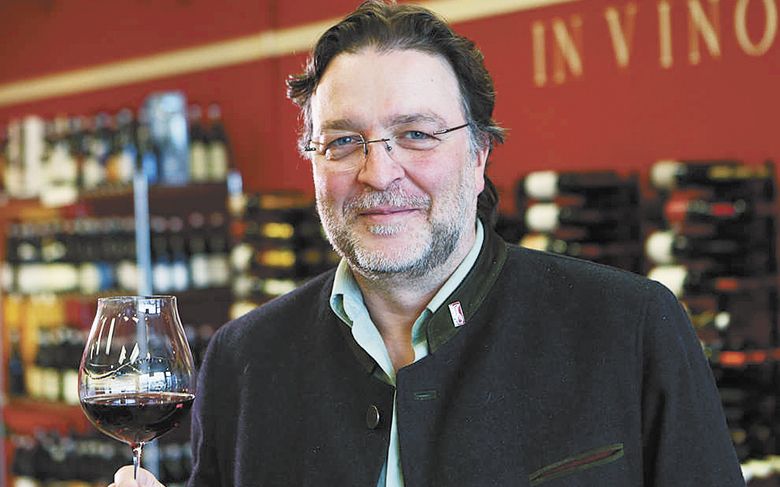OLCC Works for Oregon
How the state agency is essential and on our side
By Boris Wiedenfeld-Needham
In my work, the OLCC often comes up in conversation, and I feel that the public perception is many times far from the reality as I know it. I own a small chain of wine stores in the Eugene/Springfield area, as well as being a State Liquor Agent. My work is hands-on, so I interact with many customers, as well as distributors and suppliers.
One of the most common sentiments people voice to me is that the OLCC is government over-reach and that they are sorry that the government tries to regulate my business. They don’t know that I want to be regulated. It is many of these OLCC statutes and rules that allow small family businesses like ours to survive. On the non-liquor side, the cornerstone rule is that we all pay the same. If we want to buy one bottle of a certain wine, we pay the same price as if Costco wants to buy 2,000 cases of it. You might think that this would make prices higher, since there are no volume discounts, but in my experience, that is not true. The huge chains like Costco have enough pull with the big distributors to make sure this doesn’t happen.
Several other regulations, for example the rule against selling alcohol below wholesale, ensure that big chains can’t come in and take out local family businesses with a “scorched earth” policy, only to raise the prices even higher, once they have gotten rid of their competition. I have personally witnessed that happen in other states.
The most misunderstood part of our state’s alcohol system however is the liquor side. There, I hear often how the state just taxes liquor to death. It doesn’t. In fact, Oregon doesn’t have a tax for retail liquor at all. The state doesn’t make its revenue from liquor taxes, but rather from the profit margin. After paying a small commission to the liquor agents — currently between 6.5% and 8.5% — the rest of the profits from the sale of liquor go toward the state general fund, as well as cities, counties and educational programs. We are talking on the scale of a half a billion dollars per biennium.
What would happen if we just lifted all restrictions on liquor sales? That half a billion would almost all leave the state, going into the coffers of big chains like Costco and Safeway/Albertson’s. The liquor chains like Total and BevMo would come to Oregon and try to bury local, family-owned businesses. And I guarantee you, with a budget hole of a half billion, the next time you buy a car, a new stove or computer, you’ll be paying 9% sales tax, because that kind of hole doesn’t just fill itself. What about the prices of liquor though? Well, just go up to Washington and see how well that worked out for them, after they privatized liquor.
Oh, and those state liquor stores? Contrary to what many think, these are not state-owned. They are about 280 small family businesses — you are only allowed to own two — many of them started by immigrants like me, that create jobs, have relationships with their customers and spend their money in their communities.
The OLCC is far from perfect. Some have had terrible experiences with enforcement. Sometimes rules seem arbitrary and overly bureaucratic. The commission knows that it is under pressure to get more in line with the times, and I think they are making significant strides, opening more and different agencies, and modernizing the way they do business.
I’m sure some will think that I’m writing this because I want to “kiss up” to the OLCC or have some ulterior motive. If you know me, you know that self-interest is not a strong part of my personality. I just get frustrated by so many people who say they stand for common people and families, and therefore are so against the OLCC and government regulations; when in fact, the OLCC is the very agency that empowers small family businesses like ours to survive and thrive. In my humble opinion, they are quintessentially Oregonian.
In the next issue: Why I don’t want to pump my own gas. Just kidding…











